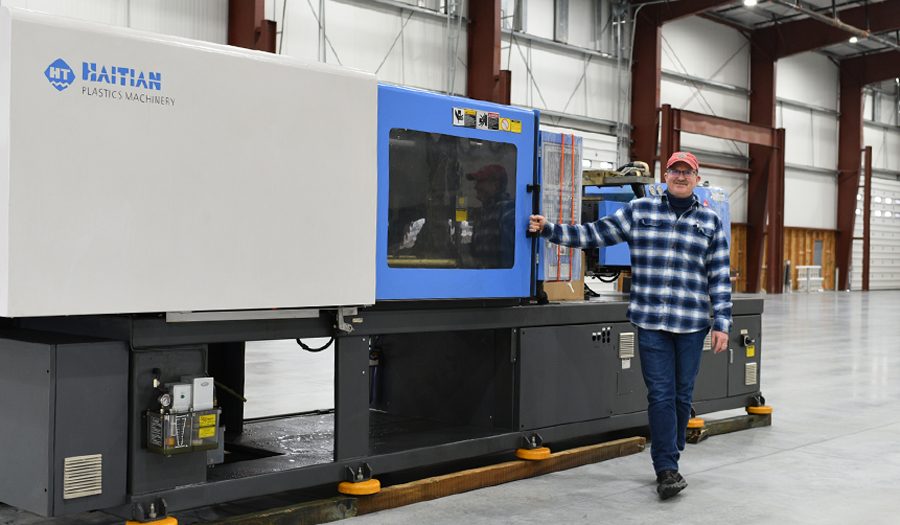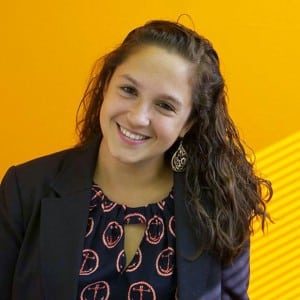
Home » Richland company adds new manufacturing plant, robotic automation
Richland company adds new manufacturing plant, robotic automation

February 13, 2019
Plastic Injection Molding expansion allows for improved capacity, speed
A north Richland company is poised for
growth with the addition of a new 28,000-square-foot manufacturing plant in the
back of its existing building that includes a 4,000-square-foot mezzanine.
Plastic Injection Molding Inc.
manufactures filter body parts for agricultural irrigation, special parts for
medical diagnostic equipment, and snap-on dials for optical sporting equipment
like rangefinders at 2695 Battelle Blvd.
The 23-year-old company also can
manufacture whimsical things, like the colored plastic rings kids reach for
while riding on the Gesa Carousel of Dreams. (The company donated the rings to
the Kennewick nonprofit.)
Plastic Injection Molding’s roster of
clients includes Cadwell Labs, Pacific Northwest National Laboratory, Battelle
Memorial Institute, Fluor Hanford and Leupold & Stevens, among others.
Owner Ken Williams said that nearly 30
percent of the company’s jobs are local, with the rest from the Northwest
region and beyond.
“When we started the company, it was
just (my wife) Sharon and I,” Williams said. “Now we are 15 people, and we keep
adding equipment and auxiliary machines. We’ve outgrown the building we’re in.”
Plastic Injection Molding currently
has nine injection molding machines and one in storage — the biggest being a
230-ton Van Dorn molding machine.
The plant also can handle secondary
operations such as tooling, welding, assembly and packaging.
The $3.1 million expansion project
will allow the company to add a 400-ton plastic injection machine, which means
new capabilities to manufacture bigger plastic parts.
“We’re limited to building parts that are
12-by-12 inches and weigh a little over 20 ounces,” Williams said.
The company also will have additional
space for more tooling machines to build more of its own molds.
Currently, Plastic Injection Molding
creates 25 percent of its own molds in-house and are at 80 percent capacity for
a single shift. Williams said he hopes to have enough equipment for an extended
single shift, running from 7 a.m. to 5 p.m. every day.
“We do lose out of most jobs from
speed of building or getting the job to market. We lose them because they may
need the parts in two weeks instead of eight,” he said. “We want to grow our
capabilities and be more efficient.”
The ultimate goal is to make molds
faster, he said. The computer numerical control machines would be running in
parallel, significantly decreasing the time it takes to get plastic parts into
production.
The plant also needs a bigger space
for another reason: robots.
“We’ll have more space between
machines and add robots to add automation,” Williams said. “Workers will be
able to focus on more value-added tasks other than just pulling parts from
machines.”
He hopes to add one this year and four
to five more in 2020.
The robots are custom made for
injection molding and can pull parts out of the machine without setting them on
the conveyor. They also can sort and identify reject parts and perform basic
quality control.
“That’ll mean we can run machines
longer. We’re adding capacity without adding more people, trying to get rid of
repetitive tasks and remain competitive,” Williams said.
The Williams family founded the
company in 1996 with the help of Ken’s grandfather, John Recter, founder of
Western Sintering Co. in Richland. Ken’s father was a material scientist who
worked on material research for Hanford and later went on to start Kiona
Vineyards.
“I grew up around and seeing what
manufacturing was,” Williams said.
He was working in information
technology support for manufacturing companies in Seattle when he took the leap
to start his own manufacturing company with the support of his grandfather.
“Grandpa Rector was interested in
building a plastic company,” Williams said. “He said he had five good years
left in him — he was 79 at the time — and the time and money and needed a
project, so we formed a corporation and we moved back to Richland, bought 20
acres from the city, and built Plastic Injection Molding from the ground up.”
Williams said it wasn’t easy at the
beginning.
“For a time, we had no sales and lost a ton of
money, but we slowly built our customer base and eventually paid off all our debts,”
Williams said.
Williams said he expects to receive the city’s
occupancy permit in the next three months and that’s when they’ll start moving
machines over to the new building.
Local News Manufacturing
KEYWORDS february 2019





